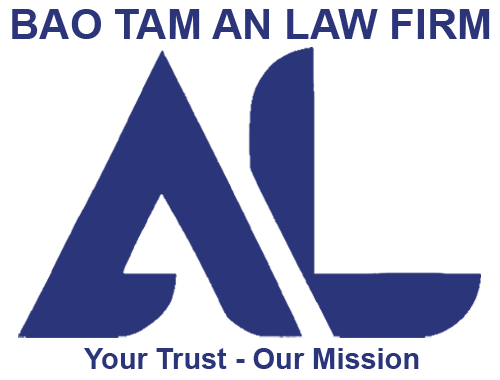Enterprise Consulting: Legal Frameworks for Business Expansion in Vietnam
Vietnam has rapidly emerged as a key player in the Southeast Asian economy, attracting significant foreign investment and entrepreneurial ventures. For businesses looking to expand into this dynamic market, understanding the legal frameworks and regulations governing enterprise operations is crucial for success. This article delves into the importance of enterprise consulting, the key legal frameworks that govern business expansion in Vietnam, and the role of business lawyers in facilitating this process.
The Importance of Enterprise Consulting
Enterprise consulting involves providing expert advice and strategic guidance to businesses aiming to expand, optimize operations, and navigate complex legal requirements in new markets. For companies considering expansion into Vietnam, effective consulting can help:
- Identify Opportunities and Align Strategies: Consultants assess market potential and identify sectors with growth opportunities that align with the organization’s capabilities and goals.
- Navigate Regulatory Requirements: Understanding the legal landscape and compliance requirements is essential for businesses to operate legally and avoid potential pitfalls.
- Mitigate Risks: Engaging consultants allows businesses to identify and manage risks associated with entering new markets, including regulatory, operational, and financial risks.
- Enhance Market Entry Strategies: Consultants can develop comprehensive strategies for market entry, including choosing the right business structure, forming partnerships, and establishing operational frameworks.

Key Legal Frameworks for Business Expansion in Vietnam
Vietnam’s legal landscape for business operations is governed by several laws and regulations that foreign investors and businesses need to understand:
1. The Law on Investment
The Law on Investment provides the primary regulatory framework for foreign investment in Vietnam. Key aspects include:
- Investment Forms: Foreign investors can establish various forms of business entities, including wholly foreign-owned enterprises (WFOEs), joint ventures, and business cooperation contracts (BCCs). Understanding which form best suits the business strategy is crucial.
- Investment Registration: Foreign enterprises must register their investments with the Ministry of Planning and Investment (MPI) or relevant provincial authorities, ensuring compliance with legal requirements.
- Incentives and Restrictions: The law outlines investment incentives provided by the government, such as tax holidays or reduced tax rates, as well as sectors where foreign investment is restricted or prohibited.
2. The Law on Enterprises
The Law on Enterprises governs the establishment, organization, and operation of business entities in Vietnam. Key provisions include:
- Company Structures: The law specifies the types of business entities, regulations related to their formation and management, and rights and obligations of owners and shareholders.
- Management Practices: Understanding corporate governance requirements, including meetings of shareholders, board responsibilities, and reporting obligations.
- Dissolution and Bankruptcy: Procedures for winding up a business or filing for bankruptcy are governed by this law, specifying how assets are handled.
3. The Labor Code
The Labor Code governs employment relationships in Vietnam and outlines the rights and responsibilities of both employers and employees. Key considerations include:
- Employment Contracts: Businesses must enter into written labor contracts with employees, specifying terms of employment, compensation, benefits, and working conditions. The law requires contracts to be compliant with Vietnamese labor regulations.
- Minimum Wage and Working Hours: Compliance with minimum wage requirements and regulation of working hours is essential for lawful employment practices.
- Employees’ Rights: Employers must be aware of employees’ rights concerning overtime pay, leave entitlements, health and safety, and working conditions.

4. Intellectual Property Law
For businesses expanding into Vietnam’s market, protecting intellectual property (IP) assets is critical. The Intellectual Property Law establishes the framework for protecting trademarks, copyrights, patents, and trade secrets. Key points include:
- Registration Process: Understanding how to register IP assets in Vietnam to ensure legal protection against infringement.
- Enforcement Mechanisms: Familiarity with the legal avenues available for enforcing IP rights and the potential consequences of infringement.
5. Tax Compliance
Understanding Vietnamese tax laws is vital for businesses operating in the country, as it affects cost structures and profit margins. Key aspects include:
- Corporate Income Tax: Familiarize yourself with the corporate income tax rates and regulations applicable to businesses based on their operational structure.
- Value Added Tax (VAT): Be aware of VAT implications on goods and services provided by the business, ensuring compliance and proper accounting.
The Role of Business Lawyers in Facilitating Expansion
Engaging a business lawyer is a prudent step for companies seeking to navigate Vietnam’s legal landscape effectively. Key benefits of hiring a lawyer include:
1. Legal Expertise and Guidance
Business lawyers possess knowledge of local laws, regulations, and procedures. They can guide businesses through the complexities of foreign investment regulations, ensuring compliance and avoiding legal pitfalls.

2. Documentation and Registration Support
Lawyers can assist in preparing necessary documents for investment registration and business setup, ensuring all submissions are legally sound and made in accordance with local requirements.
3. Contract Drafting
A business lawyer can draft and review contracts, such as labor agreements, shareholder agreements, and partnership agreements, ensuring clarity and protecting the company’s interests.
4. Risk Management
Lawyers help identify potential legal issues and vulnerabilities that may arise during the business expansion process, providing strategies to mitigate risks and avoid disputes.
5. Representation in Case of Disputes
In the event of legal disputes, business lawyers can provide representation in negotiations, arbitration, or court proceedings, advocating for the company’s rights and protecting its interests.
Best Practices for Successful Business Expansion
To navigate the process of expansion effectively and ensure compliance, consider the following best practices:
- Conduct Market Research: Understand local market dynamics, cultural nuances, and economic conditions that may impact your business strategy.
- Engage Local Expertise: Collaborate with local consultants and legal counsel who have an in-depth understanding of Vietnam’s regulatory framework and business practices.
- Develop Comprehensive Compliance Policies: Create robust internal policies that outline compliance protocols, employee rights, and company responsibilities, ensuring clarity among all stakeholders.
- Utilize Technology: Implement digital tools to streamline documentation, manage contracts, and track compliance requirements efficiently.
- Foster Relationships with Local Partners: Building connections with local businesses, government entities, and community stakeholders can facilitate your entry into the market and enhance your operational success.

Conclusion
Navigating the regulatory landscape for business expansion in Vietnam requires a comprehensive understanding of various legal frameworks and compliance requirements. By engaging in effective investment consulting, understanding key laws, and hiring qualified business lawyers, multinational companies can successfully establish operations in Vietnam while minimizing risks. Implementing best practices and proactively managing compliance will not only enhance business outcomes but also contribute to the long-term sustainability and growth of operations in this thriving market. With the right strategies in place, businesses can confidently embark on their expansion journey in Vietnam.
